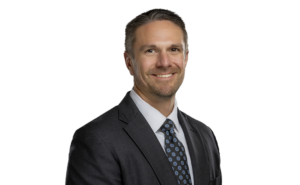The oncology landscape has changed dramatically over the past few years, partly in response to the COVID-19 pandemic.
The patient backlogs that resulted from the pandemic have had an enormous impact on cancer care. When elective procedures were put on hold during the initial stages of the pandemic, many patients either stopped getting checked for cancer, or delayed getting treatment for their existing cancer out of fear of contracting COVID. As a result, cancer rates have progressed.
These factors have led to a massive increase in demand for medical oncologists and hospitals across the country are relying on locums for oncology care. As patients deal with the after effects of delayed care and providers struggle to keep up with increased caseloads, hospital recruiters often find themselves in the middle—trying to ensure patients’ needs are met, without burning out their providers.
“Providers are facing an increase in patient volumes on a daily basis,” said Jason Hiemer, Senior Consultant at Hayes Locums,
“The increase in stress and working hours could create burnout for those in permanent positions. Hospitals often have to bridge the gap with locums to prevent their doctors from getting burnout and to keep up with the increase in patient volumes.”
Locum tenens can give facilities breathing room by bringing in physicians who can help tackle patient backlogs, while offering support to full-time staff. Here’s how locums can help facilities adapt to the changing landscape of oncology care:
Helping prevent burnout for permanent providers
Because of the huge increase in patient volumes, oncologists are working more hours and dealing with more stress—all of which can easily lead to burnout. As a result, hospitals are struggling to hire more permanent physicians to keep up with the increase—and relying on locums to bridge the gap.
Oncology locums providers can help keep permanent staff from burning out, by providing reliable support and easing patient loads.
Locum tenens can also be a helpful way for oncologists to prevent impending burnout, by giving them more options besides continuing their full-time job or leaving the profession. With locum tenens, physicians can take some time off between positions, or test out new job environments before committing. Because of the increased demand for oncologists, many facilities are also offering more flexibility, e.g. increased telehealth options, so physicians can have more control over their schedule.
Providing continuity of care by relying on a shortlist of trusted locums providers to fill coverage gaps
One of the unique aspects of oncology is the importance of continuity of care for patients. Patients don’t want to see a different doctor every time they go into the clinic. That’s why, unlike many other specialties, the majority of oncology locum tenens assignments tend to be full-time.
That means locums oncologists don’t have to bounce around to different facilities—instead, they can take the time to build relationships with their patients, and provide care on a long-term basis.
“[Most oncologists] don’t like to move around to different hospitals, because of the relationships they build with their patients,” said Jason Hiemer.
“So when they’re looking at a potential job, they want to know: am I going to have to find another job in three months when they find someone permanent, or does it have the potential to be a long-term assignment? They want to become a part of the community and establish those relationships so they can be with patients for the long term and provide that quality care.”
Our consultants know how important continuity of care is, to both providers and facilities. That’s why our oncology team takes the time to build relationships with our providers—so that when those urgent needs for coverage come up, we have a trusted shortlist of oncologists who we know are capable and ready to provide care to patients on the timeline that the hospital needs.
Understanding the landscape of each assignment, so we can set clear expectations for both physicians and facilities
Because continuity of care is so important to oncology, we want to make sure we get it right the first time. That’s why we make sure we ask the right questions of both our providers and our facilities, so we can set expectations for our clients.
We take the time to conduct site visits with our clients, so we can get a good understanding of the environment and the facility’s unique needs, so that we can communicate that to the provider. We also make sure to get a sense of any potential concerns our providers have, so we can address those concerns with the facility so they can make sure it’s the right fit—for example, if a physician is looking for a longer commitment, we’ll reach out to the facility to get a sense of their hiring timeline.
“I think the most important thing we do is focus on building relationships with our physicians,” said Jason Hiemer.
“Maybe it’s a year before a doctor might be ready to work a locum tenens assignment, but the more you build the relationship, the more you build up trust. So when those urgent needs do come up, you have quality candidates you can call that you’ve already established a relationship with, and who you know you can trust. Because that’s what it’s about: it’s not about being competitive or earning money. We need to build those relationships so we have doctors ready to go to fill a need.”
That transparency goes both ways: When recruiters call us with an urgent need, our consultants have the expertise and understanding of the landscape to quickly give them a synopsis of who is available, what the cost is likely to be, if their need can be filled by one physician or if it will require multiple, whether the physicians have the necessary licenses and privileges, and if not, how long it will take. All of those details are crucial to make sure that we can address their needs—and if there’s a chance we may not be able to, we are transparent about that, so they have time to make other arrangements if need be.
We know that the stakes are high when it comes to making sure that patients are getting the right cancer care. Taking the time to get clarity on each assignment and setting expectations between the doctor and the facility helps ensure that we’re finding the right fit, and that both parties feel as comfortable as possible before the assignment begins.





